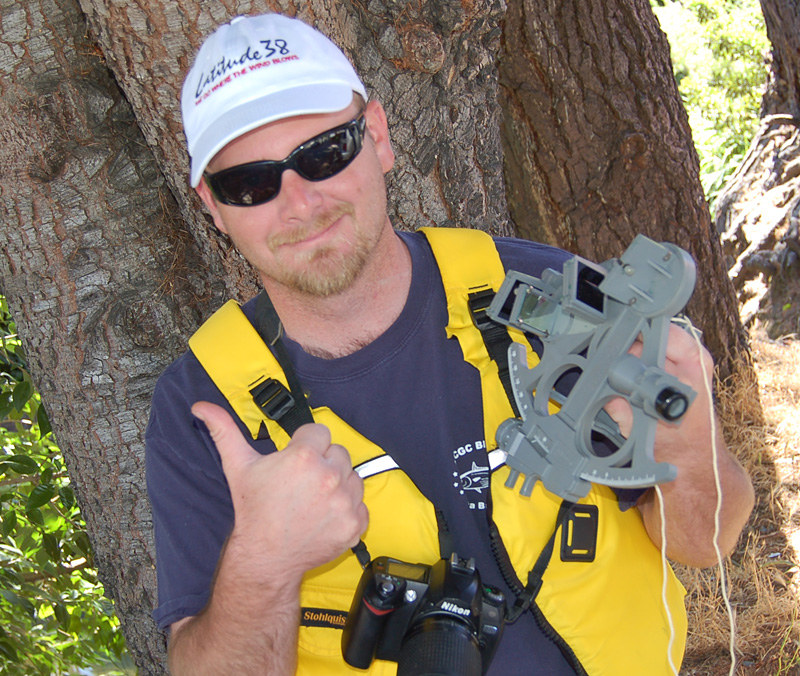
GPS Spoofing Reminds Us to Keep Our Sextant and Paper Charts Handy
As if we all needed more to worry about. We’ve written before about the phenomenon of GPS spoofing, as it’s becoming more apparent that, like so much of the technology we’ve come to depend upon and naively trusted, there are some systemic weaknesses. A recent article in the New York Times reminds us that the spoofing of GPS signals is getting easier and increasingly common. What is spoofing? Online it’s described as the act of disguising a communication from an unknown source as being from a known, trusted source, generally with some malicious intent.
The system has a fundamental problem in that GPS signals are weak as they arrive from their satellites and can be overpowered by stronger, land-based local signals. Now, why would anyone want to do that? On a global scale, nation-states have been having a great time exploring new methods of war, with cyberwarfare becoming very popular amongst the world’s generals. Shipping soldiers all over the world is expensive, and has only become more problematic with a pandemic going on, since they now have to wear masks in the trenches. With stay-at-home orders in place, many soldiers are now fighting other nations from the comfort of their home office, though spoofing does actually require a local presence.
However, it’s not just nation-states. The Times reports, “Spoofing and jamming devices have gotten so inexpensive and easy to use that delivery drivers use them so their dispatchers won’t know they’re taking long lunch breaks or having trysts at Motel 6. Teenagers use them to foil their parents’ tracking apps and to cheat at Pokémon Go. More nefariously, drug cartels and human traffickers have spoofed border control drones. Dodgy freight forwarders may use GPS jammers or spoofers to cloak or change the timestamps on arriving cargo.” When we were fooling our parents, it was all analog.
For sailors, this means you probably should keep your sextant and paper charts handy, and if you ever have that feeling that what you’re seeing on your chartplotter doesn’t appear to match up with what you’re seeing with your eyes, you should pay attention. Of course, that’s always been the case. You may not be the target of spoofing, but your signals could be inadvertently caught up in someone else’s spoofing efforts.

The Times also reports that the government and defense department are working on alternatives and have mandated a GPS backup with the 2018 National Timing and Resilience Security Act. Other nations have eLoran systems to avoid being vulnerable to disruptions to the US-owned and -operated GPS system.
Right now if you want to see if your kids are actually ‘in school’ you can probably just pop your head into the dining room to see if they’re studying, but once they’re out roaming the world again that signal you see on your ‘track my kid’ app may be spoofed. They might be out sailing instead of in class.
For many, cruising is a way of living ‘off the grid’. But cruising depends on being accurate within the grid, i.e., 17.5325° S and 149.5677° W puts you in a precise cruising location. So even if you’re living off the grid you (sometimes) want to know exactly where you are on it. Redundancy and resiliency have always been wise for all aspects of sailing, but in this case, having three GPS units aboard your boat might be no more useful than having one. Paper charts, parallel rules, dividers, sextants, and, in some parts of the world, Loran may be your best backup systems.

I am blessed to own and be able to use three beautiful sextants, two are Navy, one is from 1887. VHF radios used to have a compass directing signal. If someone was talking, it would show you the compass direction to the person speaking. One time commercial fishing off Duxbury in thick fog, our radar did not concur with a DF signal we got on the VHF. Our radar was always cranky, so we went with the DF signal. Everyone was fishing the Lightship, and it took us right to them. Best to have very diverse forms of backup for navigation
Enjoyed your article and wanted to share the situation that happed in Moss Landing harbor a few (many) years ago about GPS signals being jammed by a terrestrial television receiver antenna. The article can be found here.
https://www.gpsworld.com/the-hunt-rfi/